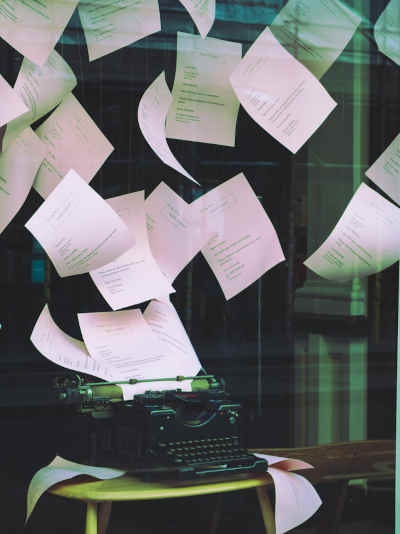Registering literary works
Fact sheet P-25:
Issued: 27th November 2009 Last amended: 9th December 2019
Fact sheet P-25: Registering literary works
 The term literary copyright covers a wide range of items; not just works that are regarded as literature in the everyday sense, such as books, poetry, plays and scripts, but anything that is written, spoken or sung, and includes works such as computer software. While this fact sheet deals broadly with registration of literary copyright works, some specific types of work may be covered in more detail on other pages.
The term literary copyright covers a wide range of items; not just works that are regarded as literature in the everyday sense, such as books, poetry, plays and scripts, but anything that is written, spoken or sung, and includes works such as computer software. While this fact sheet deals broadly with registration of literary copyright works, some specific types of work may be covered in more detail on other pages.
- When to register
A literary work may be registered at any stage of development, and we recommend that your work is registered prior to submission to third parties or any online publication if at all possible.
Although it is tempting to wait until a work is complete, it is important to remember that a registration is evidence of your work from the date of registration (this is the earliest time that we can verify the content of your work). If you are making speculative submissions of your synopsis or draft to publishers for review or consideration for a contract, you should ideally register prior to this as you will not necessarily know how reputable the companies you are submitting to are or how they will use your work.
You should not be too concerned if your work changes after registration. New versions of the work can be added at any point as registration updates as your work evolves (see below). In fact, it is common for writers to first register a draft or synopsis and add more complete versions as the work evolves.
- How to register
Copyright registration can be carried out either online or by postal application.
Online registration is cheaper and will provide immediate cover for your work.
If there is a large amount of data, or if you have a slow or unreliable Internet connection, you may wish to consider a postal application instead.
- Registering online
During online registration you will be asked to upload the files that make up your work. If your work consists of many files, then it is better to create a single compressed archive of the work, using a utility such as WinZip, WinRar/Rar, 7-Zip, StuffIt, or Tar and upload this archive file during registration. (It is far more convenient to upload one .zip file than hundreds of individual files).
- Registering by postal application
For postal registration applications, you should include a full copy of your work along with the application form and payment
The preferred format for registration is electronic media such as CD/DVD/BD or USB drive. We also accept paper documents, but because of the extra workload this format generates, limits and conditions may apply. Please see our guidance notes for more details on postal applications.
- Registering smaller items as collections
It is fine to register a collection of related items as a single work. Poets for example will normally submit a collection of poems as a single work. In such cases you would simply enter a single title for the collection as a whole as the ‘title of work’ when completing the application form.
- Dealing with changes to the work
Most literary work naturally goes through a process of editing or redrafting before completion, and even then may be subject to changes in the future.
This is not a major concern; a work may be registered at any stage of development, and as it evolves new versions of the work can be added at any point as registration updates. Using this method the author gains independent evidence of the evolution of the work over time and can retrieve copies of any or all versions registered if needed.
For further details please see our fact sheet P-17: Updating Copyright Registrations.
